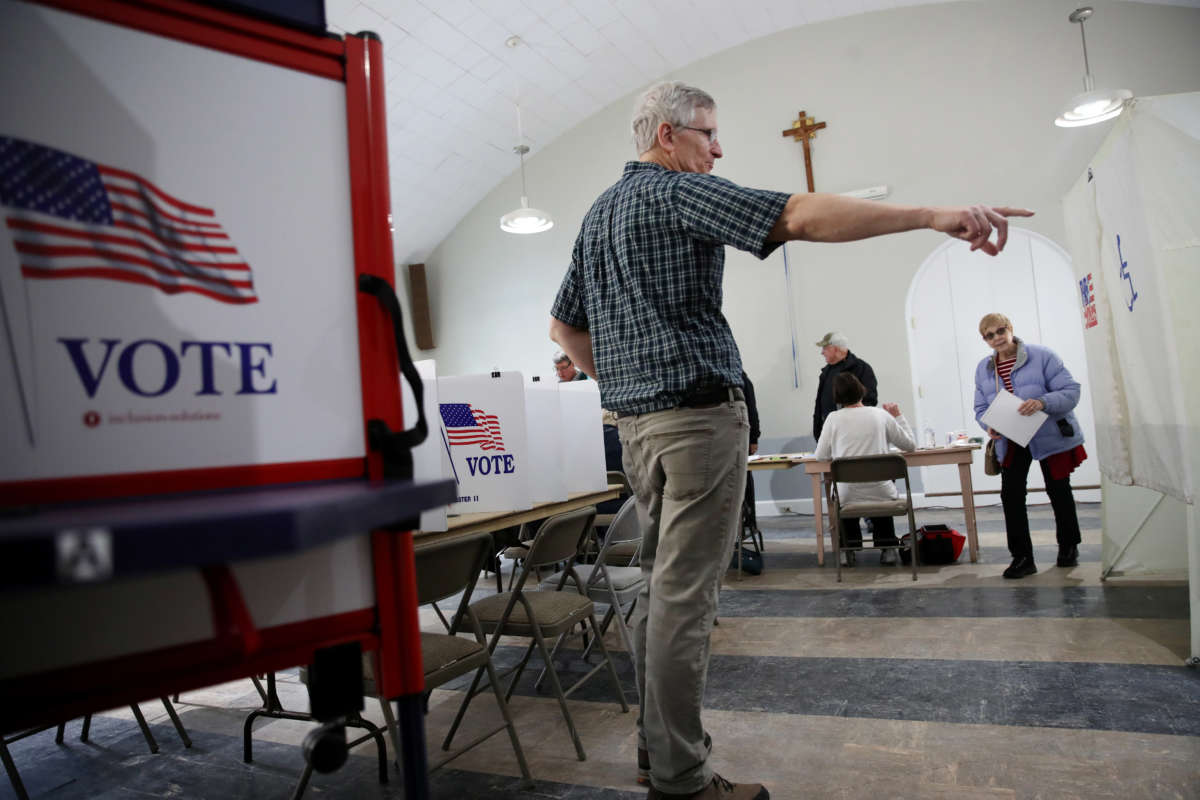Iowa’s place as the first caucus state in the presidential nominating contests for the Democratic Party may soon come to an end — but many have pointed out that New Hampshire, the state first in line to replace it, doesn’t reflect the diversity of the country as a whole.
According to reporting from Politico, which cites conversations with Democratic National Committee (DNC) members and state party chairs, New Hampshire is the top contender to succeed the Iowa caucuses as the first nomination contest in presidential politics; traditionally, the state’s primaries have been second, after Iowa’s caucuses.
Neighboring states in the New England region appear to have backed the idea of New Hampshire leading the nation for Democratic presidential primary contests. But there’s been pushback against the idea elsewhere, including in Nevada, which has a more diverse electorate and which is traditionally the fourth state in the nation to hold a primary.
Neither Iowa nor New Hampshire reflect the demographic characteristics of the nation at large. While 60.1 percent of the U.S. is white, Iowa’s population is 85 percent white and New Hampshire’s population is 93.1 percent white.
According to an analysis from the financial site WalletHub, many states represent the country’s population better than Iowa or New Hampshire; taking into account factors like race, age and income, the website’s study named Illinois and Florida as the top two states, with Michigan, Arizona and Ohio rounding out the top five.
In terms of states with racial demographics that most reflect the country as a whole, Illinois still tops the list, followed by New York, New Jersey, Connecticut and Virginia.
However, none of the states on either list are among the four states (Iowa, New Hampshire, South Carolina and Nevada) that currently make up the first nominating contests for the DNC.
If current President Joe Biden decides to run again and doesn’t face a significant challenge, any changes to the Democratic Party’s primary schedule may have little effect in 2024. But if Biden bows out and the Democratic nomination relies on a primary process after all, it could matter a great deal which states goes first; whether or not those states are representative of the overall voting public could have a significant impact when it comes to who eventually wins the nomination.
In an op-ed for Truthout in 2019, Iziah Thompson, then a Nneka Fritz scholar at New York University’s Wagner School of Public Service, said that the primary process as it stands right now is inherently racist — by prioritizing states that don’t accurately reflect the country’s diversity, he wrote, issues important to voters of color are rendered little more than an afterthought.
But allowing a more diverse state to go first may not be the solution, Thompson wrote. Instead, it’s worth considering getting rid of the state-by-state process altogether.
“Even if we can’t agree on another more diverse primary state, there are a bevy of other options, such as running our primary like we run our general election,” Thompson said at the time. “No offense to Iowans, but the entire country deserves a say in who runs on the biggest of tickets.”
Our most important fundraising appeal of the year
December is the most critical time of year for Truthout, because our nonprofit news is funded almost entirely by individual donations from readers like you. So before you navigate away, we ask that you take just a second to support Truthout with a tax-deductible donation.
This year is a little different. We are up against a far-reaching, wide-scale attack on press freedom coming from the Trump administration. 2025 was a year of frightening censorship, news industry corporate consolidation, and worsening financial conditions for progressive nonprofits across the board.
We can only resist Trump’s agenda by cultivating a strong base of support. The right-wing mediasphere is funded comfortably by billionaire owners and venture capitalist philanthropists. At Truthout, we have you.
We’ve set an ambitious target for our year-end campaign — a goal of $112,000 to keep up our fight against authoritarianism in 2026. Please take a meaningful action in this fight: make a one-time or monthly donation to Truthout before December 31. If you have the means, please dig deep.
